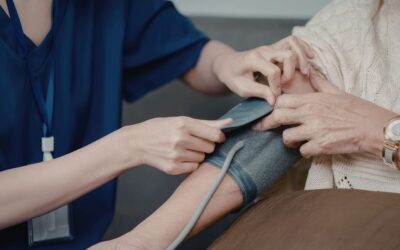How do I change doctors?
By Isabelle Bergeron, Le Bel Âge
Wrong diagnosis, information not communicated, lack of follow-up or difficult contact… When you wonder whether it’s time to change doctors, what recourse do you have?
Whether it’s our family doctor of many years, a specialist we’ve seen two or three times, a new dentist, a recently hired home care nurse, it doesn’t matter: we have the right to break off our relationship and seek out another professional, if necessary. “It’s true, however, that it’s easier to change pharmacists than doctors,” admits Patrick Ouellet, a lawyer with a passion for health rights… and a pharmacist!
All you have to do to find a new pharmacist is turn right around the corner, just as you do with other specialists (dentists, optometrists, etc.). If we go ahead, however, we need to ensure that we obtain or have transferred the information gathered about us (our file).
Change is more complicated with a doctor. If it’s our family doctor, we’ll have to register with the Guichet d’accès à un médecin de famille (found via the search engine of google.com or the RAMQ website, ramq.gouv.qc.ca), with the delays that this implies. This is because the doctor with whom we break off our relationship is under no obligation to refer us to a colleague, unless he or she himself or herself terminates the relationship, which he or she is entitled to do. In the case of a specialist (dermatologist, neurologist, etc.), you’ll need another prescription from a doctor. Not a foregone conclusion either. So it’s best to leave yourself some time to think things over when in doubt.
Before deciding
“You have to take care of yourself first and foremost,” stresses Maître Ouellet. If we consulted a health specialist, it was for a certain problem. Does this problem still exist? Are we sure we’ll be taken care of if we decide to cut our ties? Our health must come first. Finding a new doctor can be time-consuming, and in some cases almost impossible.
Another aspect to keep in mind: “Communication! The majority of people who work in healthcare do so in good faith and have their patients’ well-being at heart. That doesn’t mean they don’t make mistakes, but you can communicate to them what’s wrong, and they’ll probably be open to sorting it out.”
Thousands of medical procedures are performed every day, so it’s only natural that mistakes are made, as in any other field. Fortunately, most of them have no major consequences for the patient and can be resolved. You have to bear in mind that any professional who makes a mistake will have it on his or her heart for a long time,” continuesMe. Ouellet. And he’ll be looking for one thing only: to ensure his patient’s well-being.”
However, as in all professions, there are some people in the healthcare field who are less competent than others, who communicate poorly or, unfortunately, whose errors lead to more serious consequences: delayed diagnosis aggravating an illness, prescribing the wrong medication, inappropriate intervention, and so on. In such cases, filing a complaint is an option worth considering.
How do I go about it?
The Act respecting health and social services and a code of ethics govern most health-related professions. For example, a doctor is not obliged to guarantee the desired result – the patient’s cure – but must use all possible and reasonable means to achieve this goal. Nor can he practise his profession in an impersonal way, having to seek to establish a relationship of trust and provide services that are scientifically, humanely and socially appropriate, with continuity and in a personalized and safe manner. To find out more, visit the website of the Ministère de la Santé et des Services sociaux (msss.gouv.qc.ca), by typing “Loi sur la santé et les services sociaux” in the search engine).
Of course, not every breach of these duties warrants a complaint. But if this is deemed to be the case, there are a number of factors to take into account. “First of all, we need to be aware that, as soon as we file a complaint against a doctor, our link with him or her is severed,” explainsDr. Mauril Gaudreault, President of the Collège des médecins.
Every year, the Collège syndic analyzes some 1,800 complaints (30% of which relate to the quality of communication or the physician’s attitude during professional practice). Some 35 will be subject to disciplinary proceedings. “Afterwards, we may recommend that the doctor attend a workshop, for example on communication, if this was lacking,” explainsDr Gaudreault. The doctor may receive a warning, have his or her practice restricted, be visited by an investigator, and so on. The aim is to improve the practice of medicine.”
If the situation we are complaining about occurred in a healthcare institution, we can file a complaint with the institution’s Service Quality and Complaints Commissioner. It will have 45 days to deliver its verdict. If we’re not satisfied, we can ask the Québec Ombudsman (protecteurducitoyen.qc.ca) to review our complaint. or 1 800 463-5070.
To the chase
In any case, you won’t get any compensation by filing a complaint. If that’s what you’re looking for, you’ll have to be prepared to take legal action, usually civil. The process will be long and arduous, and will require the services of a specialist lawyer.
We should also first ask ourselves these three successive questions: Was there medical malpractice? If so, were there any consequences? And if so, would these consequences have occurred even if there had been no fault? If the third question is answered in the negative, and the whole is proven, an out-of-court agreement is the most common conclusion.
Before lodging a complaint or taking legal action, it’s a good idea to get in touch with reliable resources. As soon as a situation seems problematic, we note and date everything that’s said or done, keeping a record whenever possible (e-mail exchanges, written notes, etc.). Above all, we make sure we’re well surrounded and supported by those around us.
Who can help me?
These resources can guide us through the process:
– Professional orders (
opq.gouv.qc.ca/professional-orders
or 1-800-643-6912). One of the mandates of professional orders is to protect the public. You can find out more and lodge a complaint.
– Regroupement provincial des comités des usagers (
rpcu.qc.ca
or 514 436-3744). You’ll find a wealth of information on health rights. In addition to providing information, the Regroupement’s role is one of representation, support and training.
– Conseil de la protection des malades (
cpm.qc.ca
or 514 861-5922). This 45-year-old organization informs, advises, provides legal opinions, lobbies for improvements to the system, and more.
– Fédération des centers d’assistance et d’accompagnement aux plaintes (
fcaap.ca
or 1 877 527-9339). The Federation represents 14 of the 16 Complaints Assistance and Support Centers. You can find useful information, advice, help with filing a complaint, and more.
– Associations and support groups (
rqmo.org/associations-and-support-groups
or 1 888 987-5539). Here you’ll find a list of various associations that can help us, especially in relation to specific medical conditions. By calling on such groups, we can not only obtain support and information, but also compare our situation with similar ones.
– Your health rights (
vosdroitsensante.com
). Produced by Ménard, Martin avocats, this website is a veritable mine of information: rights, case law, news, references, resources and more.



